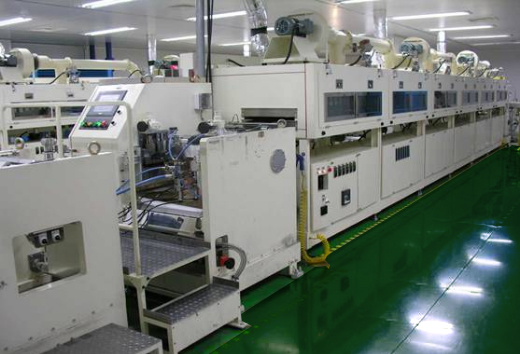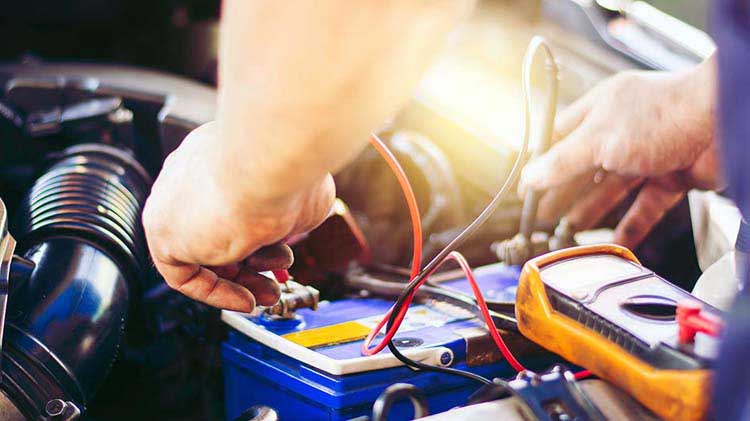Cranking Battery for Your Boat manufacture: Ensuring Smooth Starts and Reliable Performance
Introduction:
A boat cranking battery plays a crucial role in the efficient functioning of your boat\’s engine. It provides the necessary power to start the engine, ensuring smooth starts and reliable performance during your boating adventures. In this article, we will explore the importance of a high-quality cranking battery, factors to consider when choosing one, and tips for maintaining its longevity.
Importance of a Cranking Battery:
A cranking battery is specifically designed to deliver a high burst of power for a short duration, which is essential for starting the engine. Unlike deep-cycle batteries that are mainly used for powering accessories, cranking batteries are built to provide a surge of energy needed to crank the engine\’s starter motor.
Choosing the Right Cranking Battery:
When selecting a cranking battery for your boat, there are a few key factors to consider:
1. Battery Type: There are primarily two types of cranking batteries available – lead-acid and absorbed glass mat (AGM) batteries. Lead-acid batteries are more affordable but require regular maintenance, including checking fluid levels. On the other hand, AGM batteries are maintenance-free, have a longer lifespan, and can withstand harsh marine environments.
2. CCA Rating: Cold cranking amps (CCA) is an important specification to consider when choosing a battery. It represents the battery\’s ability to deliver power in cold weather conditions. Higher CCA ratings ensure reliable starts even in freezing temperatures.
3. Reserve Capacity: Reserve capacity refers to the battery\’s ability to run essential electrical systems, such as lights and radios, in case of an alternator failure. A battery with a higher reserve capacity can provide power for a longer duration, ensuring safety during unexpected situations.
4. Size and Fitment: It is crucial to choose a cranking battery that is compatible with your boat\’s engine compartment. Consider the physical dimensions and terminal locations to ensure a proper fit.

Tips for Maintaining a Cranking Battery:
Proper maintenance can significantly extend the life of your boat\’s cranking battery. Here are some tips to ensure its longevity:
1. Regular Inspections: Inspect the battery for any signs of damage, leakage, or corrosion. Clean the terminals and connections if necessary, ensuring proper electrical conductivity.
2. Charging: Maintain the battery\’s charge level by using a quality marine battery charger. Avoid overcharging or deep-discharging the battery, as it can significantly reduce its lifespan.
3. Storage: If you are not using your boat for an extended period, fully charge the battery and disconnect it from the boat\’s electrical system. Store it in a cool and dry location away from direct sunlight.
4. Testing: Periodically test the battery\’s voltage and conduct a load test to assess its performance. Replace the battery if it fails to hold a charge or perform optimally.
Conclusion:
Investing in a high-quality cranking battery is essential for ensuring smooth starts and reliable performance during your boating adventures. Consider the battery type, CCA rating, reserve capacity, and fitment when choosing the right battery for your boat. Additionally, regular inspections, proper charging, storage, and testing are essential for maintaining the battery\’s longevity. By following these guidelines, you can enjoy worry-free boating experiences with a reliable cranking battery.
-
 The world today is evolving, and people are becoming more reliant on technology for everyday tasks. From smartphones to laptops, our devices need power to function. The problem is, how do we power these devices when we are on the go or in areas without access to electricity? This is where a 12V 100Ah Lithium Battery Lifepo4 comes in. ...En savoir plus
The world today is evolving, and people are becoming more reliant on technology for everyday tasks. From smartphones to laptops, our devices need power to function. The problem is, how do we power these devices when we are on the go or in areas without access to electricity? This is where a 12V 100Ah Lithium Battery Lifepo4 comes in. ...En savoir plus -
 As the world becomes increasingly reliant on sustainable energy solutions, the demand for reliable, efficient energy storage systems is growing rapidly. One of the most promising technologies in this field is the Lithium Iron Phosphate (LiFePO4) battery pack. This type of battery has already shown great potential for use in electric vehicles and renewable energy systems, and its advantages over...En savoir plus
As the world becomes increasingly reliant on sustainable energy solutions, the demand for reliable, efficient energy storage systems is growing rapidly. One of the most promising technologies in this field is the Lithium Iron Phosphate (LiFePO4) battery pack. This type of battery has already shown great potential for use in electric vehicles and renewable energy systems, and its advantages over...En savoir plus -
 In today's fast-paced world, we rely more and more on technology to keep up with our busy lives. From smartphones to laptops, we need these devices to stay connected and get things done. However, the one thing that keeps all of this technology going is power. When it comes to energy needs, having a reliable and long-lasting power source is...En savoir plus
In today's fast-paced world, we rely more and more on technology to keep up with our busy lives. From smartphones to laptops, we need these devices to stay connected and get things done. However, the one thing that keeps all of this technology going is power. When it comes to energy needs, having a reliable and long-lasting power source is...En savoir plus -
 Portable car jump starter battery charger booster starter is a device that provides a quick and easy solution when your car battery dies or malfunctions. This device is designed to provide instant power to jump-start your car, without needing the help of another vehicle. In this article, we will discuss the features and benefits of a portable car jump starter...En savoir plus
Portable car jump starter battery charger booster starter is a device that provides a quick and easy solution when your car battery dies or malfunctions. This device is designed to provide instant power to jump-start your car, without needing the help of another vehicle. In this article, we will discuss the features and benefits of a portable car jump starter...En savoir plus -
 A starter battery is an essential component of any vehicle, providing the necessary electrical power to start the engine. It is important to keep the battery in good condition to avoid unexpected breakdowns and costly replacements. Here are some tips on how to keep your starter battery working longer:1. Regularly check the battery\'s charge levelA battery that is not fully...En savoir plus
A starter battery is an essential component of any vehicle, providing the necessary electrical power to start the engine. It is important to keep the battery in good condition to avoid unexpected breakdowns and costly replacements. Here are some tips on how to keep your starter battery working longer:1. Regularly check the battery\'s charge levelA battery that is not fully...En savoir plus -
 In recent years, the demand for efficient and reliable power sources has increased dramatically. As technology advances, so does the need for more powerful and long-lasting batteries. Lithium batteries have emerged as the power source of the future, offering numerous benefits over traditional battery technologies. Lithium batteries are rechargeable batteries that use lithium ions as the primary material. They...En savoir plus
In recent years, the demand for efficient and reliable power sources has increased dramatically. As technology advances, so does the need for more powerful and long-lasting batteries. Lithium batteries have emerged as the power source of the future, offering numerous benefits over traditional battery technologies. Lithium batteries are rechargeable batteries that use lithium ions as the primary material. They...En savoir plus -
 In today's rapidly advancing world, the demand for efficient and reliable energy storage solutions has never been greater. As we continue to transition towards a greener and more sustainable future, one technology that is gaining significant attention is the Lithium Iron Phosphate (LiFePO4) battery pack. With its numerous advantages over traditional lead-acid batteries, LiFePO4 battery packs are revolutionizing the way...En savoir plus
In today's rapidly advancing world, the demand for efficient and reliable energy storage solutions has never been greater. As we continue to transition towards a greener and more sustainable future, one technology that is gaining significant attention is the Lithium Iron Phosphate (LiFePO4) battery pack. With its numerous advantages over traditional lead-acid batteries, LiFePO4 battery packs are revolutionizing the way...En savoir plus

